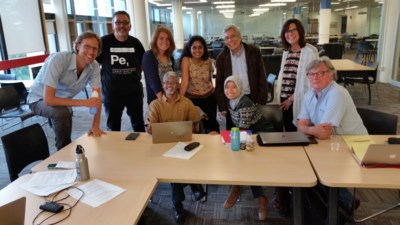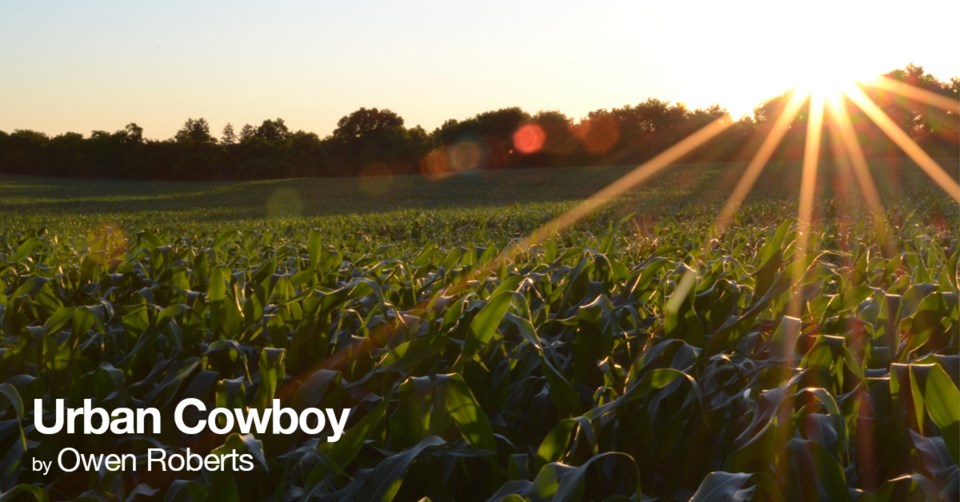World Food Week is underway.
It always concludes on October 16 – that’s World Food Day, the day the United Nations Food and Agriculture Organization (FAO) was created in 1945 by 42 countries bent on addressing global hunger.
Each year the proclamation has a theme; this year’s is climate change.
“The world’s poorest are being hit hardest by climate change,” says the FAO. “If we strengthen the resilience of smallholder farmers, we can guarantee food security for the planet’s growing global population and also reduce emissions.”
The question is, where will the next generation of smallholder farmers, or any farmers for that matter, come from?
 The young farmer research team, led by Prof. Sharada Srinivasan (centre), assembled at the University of Guelph for a planning session. Photo by Owen Roberts for GuelphToday.
The young farmer research team, led by Prof. Sharada Srinivasan (centre), assembled at the University of Guelph for a planning session. Photo by Owen Roberts for GuelphToday. Prof. Sharada Srinivasan, a leading international development researcher at the University of Guelph, is trying to come up with some answers. She’s just launched a new four-year, four-country research project to help ensure the next generation of farmers have a smooth route getting started.
For this $285,000 project, funded by the Social Sciences and Humanities Research Council, she has assembled a global research team to study young farmers’ pathways to agriculture in Canada, India, Indonesia and China.
She’s particularly interested in learning about impediments that make farming difficult for young producers, about success stories in overcoming them, and in developing and recommending policies that will help young famers everywhere.
Canada, she says, is a model in many ways for other countries. It’s already taken steps to respond to what Srinivasan calls farming’s “generational crisis” – that is, the gap between the aging farm population, and young farmers wanting to get started in the discipline.
“The government has recognized the problem, programs such as FarmStart are underway and there is a significant level of awareness in the farm community that something needs to be done to help address this situation,” she says.
At Guelph, Srinivasan holds the Canada Research Chair in Gender, Justice and Development. She knows situations for entry-level farmers differ across the globe.
For example, with farm labour in such short supply, Canadian farmers have adopted more and more mechanization, especially as they’ve grown bigger. But ironically, that may mean less work is available for sons or daughters they’re planning to bring into their operations.
It’s the opposite in India, where labour is in relative abundance. But farm incomes are very low, as is the status of farmers. Many young men shun it in favour of trying to get urban jobs.
In both countries, access to land and credit is imperative for young farmers starting out, particularly if they aren’t already part of a family farm. In some cases, the amount they’ll need to borrow is staggering. And in other cases, low incomes mean credit is hard to find.
Such factors do not have a direct connection to agronomic matters that help farmers succeed, such as soil fertility and adequate precipitation. But, says Srinivasan, if they are limiting young people from entering farming, they are highly influencing the future of agriculture.
“Agriculture has to respond,” she says. “If visions of a sustainable agricultural future are to be realized, and if young people are going to have a place in that future, the problems they face establishing themselves as farmers must be given serious attention in research and policy debate.”
Srinivasan is travelling to China and India later this month to start work with research teams there.
Read more about World Food Day here.
